First Times
Nibedita Sen’s First Times is a work of short fiction that absolutely stunned me. At first blush, it’s an interactive story about one person’s determination to get their first time just right. Upon multiple revisits, I’ve also found it to be a powerful, multilayered look at the way we lose out on reality and connection when we strive for perfection. I was lucky enough to get to chat with Sen about this piece, time travel, and the craft of writing about sex.
Nibedita Sen is a Hugo, Nebula, Ignyte and Astounding Award-nominated queer Bengali writer, editor, gamer and geek from Calcutta. She acquired several English degrees in India before deciding she wanted an MFA too, and that she was going to move halfway across the world for it. A graduate of Clarion West 2015, her work has appeared in venues like Podcastle, Nightmare and Fireside. These days, she can be found in NYC, where she lives with her spouse and their sweet elderly cat, steadily accumulating plants and pandemic hobbies. Hit her up on Twitter at @her_nibsen, where she can usually be found yelling about food, D&D, or what she's currently crafting.
First Times is structured unlike anything I’ve read before, using recursion in the narrative to expand and deepen the theme of the story. What inspired you to work in this particular structure? How did you approach storytelling in this medium?
A couple of things, actually – the most important of which is that this was my very first time (hah) writing interactive fiction. As such, I really wanted to keep the game as short and simple as possible, having been warned how easily the simplest-seeming idea can balloon once you actually get down to writing multiple branches of a narrative. Another piece of advice I was given, as a first time IF-writer, was to think about replayability – a game shouldn’t be a one-and-done (hah) kind of thing, but something a reader could go back to multiple times, discovering something new every time.
From there, my train of thought went something like this.
- What would make a reader/player want to replay the game? I mean, if they got a satisfactory story on their very first try, that would be it. I had to make them feel like there was something they missed out on, some avenues they hadn’t explored, that left them curious and wanting.
- What if they didn’t succeed in getting a satisfactory story on their first try? What if the game forced them to mess up, to run into walls, to end in failure?
- Recursion. Trying something again and again, but retaining your memories of the last attempt and applying that knowledge to your latest attempt, rather than erasing the slate. What is that, if not time travel? And what is something we imbue with incredible, artificial social significance and put pressure on people to get right the first time, if not losing your virginity?
I already knew I wanted the game to involve magic. And I was writing it for an anthology of interactive fiction about sex and sexuality. The rest was easy.
Did you find that your choice of program influenced how the story unfolded?
Only insofar as I’d never written interactive fiction before, and Twine was suggested to me as the best program for a beginner to figure out! I suppose having to figure out a new program also placed a valuable limiter on my ambitions. It forced me to keep it simple and not get carried away with flashy graphics or more complex variables.
The magic used in First Times reads as part of a complex and well-developed system. What’s your perspective on magical systems in literature? Are you interested in exploring this magical system further in the future?
I’m glad to hear that, considering I genuinely did not put any more thought into the magic system than “uhhh they’re wizards and there’s magic that lets you time travel, done”!
In all seriousness, I absolutely chose the wizard school setting to spite The Terf Who Shall Not be Named. Spite is a great source of inspiration, folks! More to the point, it seemed so obvious to me that young people learning magic – learning to bend the laws of physics in tactile, exciting ways, to manifest minor miracles at their fingertips – would immediately apply the same to their experimentation with sex and sexuality. Additionally, if you have magic that can affect the body (transmutation, transmogrification, polymorph, call it whatever you want) it seemed so obvious to me that trans, questioning or gender-non-conforming characters would use it to understand and affirm their identities. The fact that the Terf Who Shall Not Be Named never touches on this in her books is due to a basic failure of imagination: she forgot queer people exist.
Other than that, my views on magic systems might break with the standard fantasy conventions in that I don’t think a system needs to be fully explained and realized. To me, at least, magic is wonderful precisely because it’s inexplicable and sometimes unpredictable. The idea of a single unified theory of magic also seems absurd to me, unless you’re trying to turn magic into science – and even science has conflicting theories and schools of thought. We have multiple traditions of mysticism, spiritualism, the occult and what have you in our world. I think it’s so much more interesting if magic in fiction is the same; if there’s no one “correct” way of practicing it, but a hodgepodge of different schools and traditions, some of them contradicting each other, all of them not entirely understood.
That said, I think there is one rule magic systems should establish and not break without significant reason, and that’s the rule of cost. The more powerful the magic, the greater the cost, whatever form that cost takes. Magic that comes for free is no fun. Make your characters pay a price.
First Times is deeply in conversation with the concept of time-travel-as-learning-opportunity. What do you hope readers will take away from this story, when it comes to time travel, learning, and mistakes?
It’s okay to be messy! You don’t have to get things perfect, let alone on the first try! Communication and honesty are more important than skill – and skill is something that’s learned through doing, not something you show up with on the first day! Everyone is afraid of messing up – yes, even that person who seems perfect and untouchable and confident to you. Intimacy is about vulnerability, and sometimes that means letting your partner see your fears and your flaws rather than trying to keep up a performance!
Where many depictions of intimacy in prose depict idealized encounters, First Times doesn’t shy away from the messiness, embarrassment, and humor that can be part of sex. What influenced your decision to write about intimate moments in this way? Do you have any advice for writers who are trying to hone this area of their craft?
This is such a good question! I think my first tip would be to remember that “sexy” is not the same as “sexual”. A scene can include sex acts, but that doesn’t mean it needs to be sexy. Conversely, an interaction that includes no more contact than eye contact can be rife with sexual tension. When writing First Times, I knew I wanted it to be sexy, and so I chose my vocabulary and what emotions and sensations I described accordingly.
If you are trying to write a sexy scene, my next bit of advice would be to really situate it in the body of your POV character. Touch, taste, sight, sound, smell – make it sensory and visceral. Focus not just on the mechanical details of what’s happening (kissing, fingering, etc), but on how it makes your POV character feel in their body (pleasure, pain, tightening, pressure, etc) and then how those bodily feelings make them feel in their mind (delight, shame, hunger for more, etc).
That last bit is crucial. Erotica doesn’t have to take place between two people with a deep emotional connection – a one-night stand with a stranger can be hot! – but the things we feel in our bodies make us feel things in our mind. Our physical sensations evoke memories, emotions and reactions that reveal who we are as people, and connect to our wants and needs.
Finally, I’d advise being sparing with euphemisms. This doesn’t mean you have to be explicit, of course – just that it’s often better to omit a word than to replace it with an euphemism or a “softer” synonym. For instance, if you don’t want to say “penis”, maybe just leave the noun out and say “they thrust into her” rather than “they thrust their member into her”.
Your mileage may vary, of course. Like sex itself, writing sexy prose is more a matter of preferences than iron-clad wrong or right. Avoiding euphemisms is my preference, but that may not hold true for others, and that’s fine! Again, like sex itself, there’s no one-size-fits-all advice here. Figure out what delights you, what you feel comfortable with, and what audience you’re writing for, and proceed accordingly.
As for what inspired me to write about this… well, as a gray-ace/demisexual person myself, I didn’t lose my virginity (or even date anyone) till late in my twenties. Part of what held me back was aforementioned demisexuality, but also the fact that, like many other people, media had given me an entirely unrealistic idea of what sex was supposed to look like. When I did finally have sex, you know what surprised me the most? How often my partner (now my spouse!) and I wound up laughing during it. Laughing at our own bloopers, our own bad jokes, our fumbles and missteps. It wasn’t sacred or reverent, it was mundane and messy and silly and fun. And that was what made it intimate.
I wish I’d known that years ago. I don’t know if it would have made me have sex any sooner, but it would certainly have spared me a great deal of self-critical agonizing and self-inflicted pressure.
What else are you excited to explore in your work? What fascinates you?
Food and hunger are running themes in my work, as is the idea of monstrosity – which all sort of runs together thematically in the sense of, what is it you desire? What do you crave? What appetites does the world privilege, and what appetites does it deem unnatural or monstrous? And if your appetites fall into the latter category, what does it mean to embrace them anyway?
What should our readers check out next?
The pandemic has played havoc with my writing ability these last couple years, unfortunately. But you can find a full list of everything I’ve published on my website at https://www.nibeditasen.com/fiction. I’m also on Twitter at @her_nibsen!
As for work people should check out, well, FIYAH just announced their 2022 nominees for the Ignyte Awards, and there’s no better place to start if you’re looking for some of the best and brightest work being done in the genre today. Honestly, just go read all of FIYAH’s back catalog while you’re at it, or that of Anathema: Spec From the Margins.
Go read First Times now, and remember – it’s okay if you don’t get it right your first time through.
In the meantime, care for yourself and the people around you. Believe that the world can be better than it is now. Never give up.
—Gailey

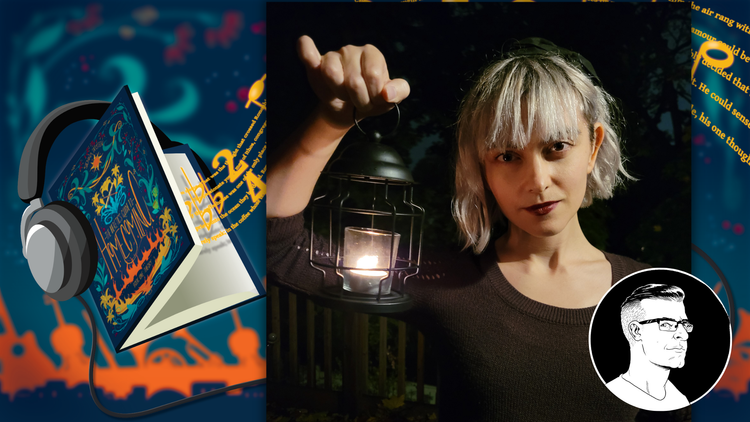
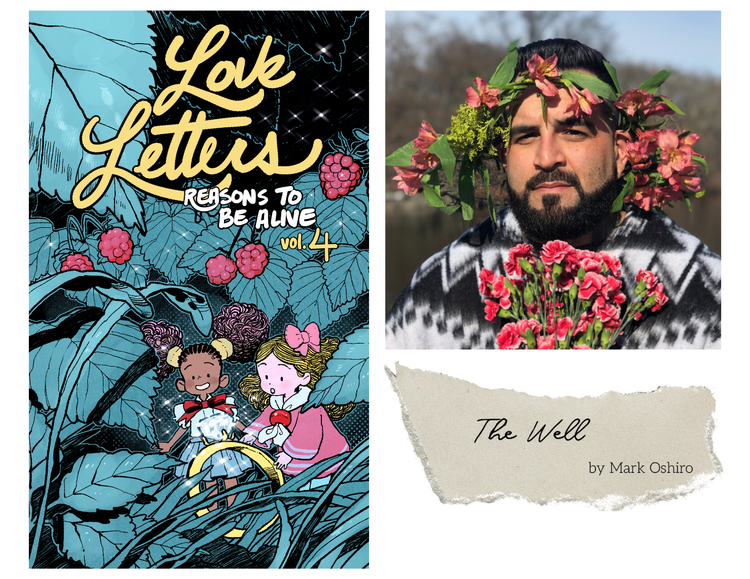
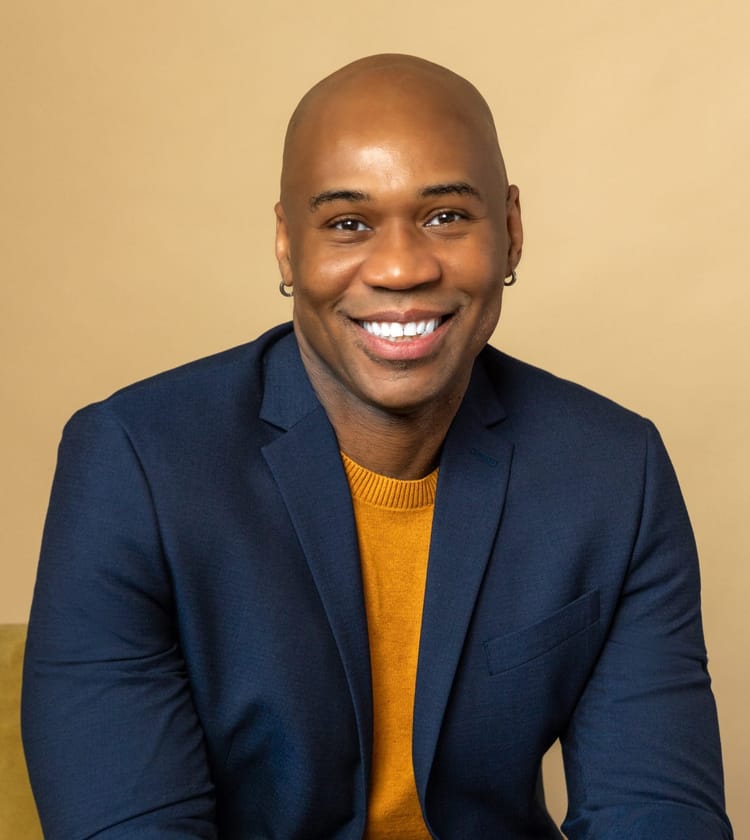
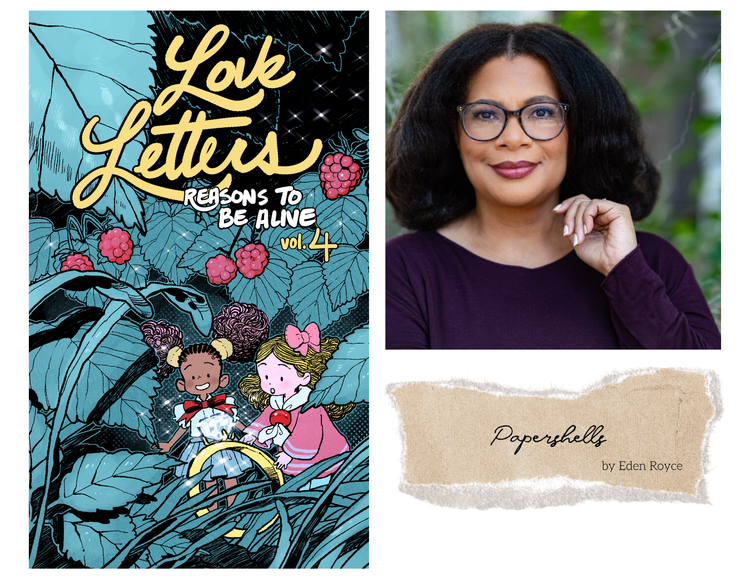
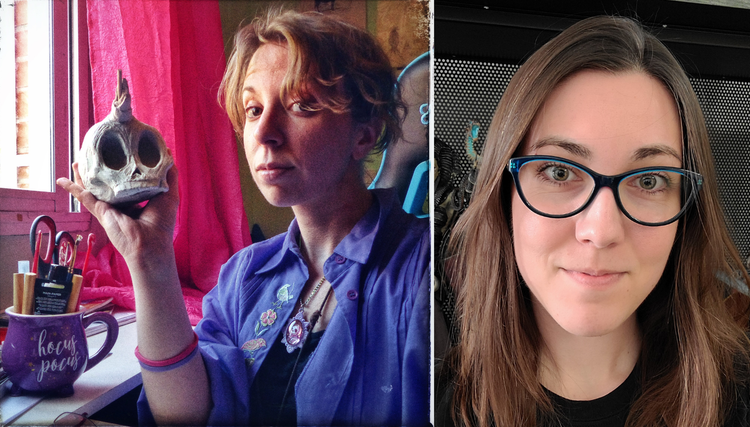
Member discussion